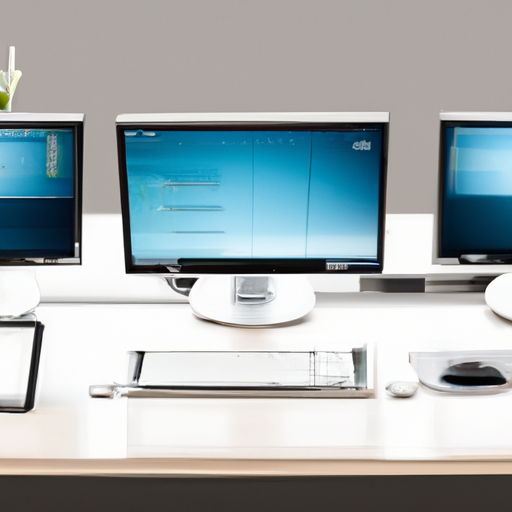What Services Are Typically Included In A Managed IT Package?
In today’s technology-driven world, having a robust IT infrastructure is crucial for the smooth operation of any business. But what exactly does a managed IT package entail? This article will provide a comprehensive overview of the services typically included in such packages. From 24/7 IT support to proactive system monitoring and cybersecurity measures, you’ll discover how these services can help your business stay ahead in the digital landscape. So, let’s dive in and explore the essential components of a managed IT package!
24/7 Monitoring and Support
When you invest in a managed IT package, one of the key services you can expect is 24/7 monitoring and support. This means that your IT systems will be constantly monitored by a team of professionals who can quickly identify and address any issues that may arise. Whether it’s a network glitch, hardware failure, or software bug, you can rest assured that there are experts keeping an eye on your systems around the clock. Additionally, with 24/7 support, you can reach out for assistance at any time, day or night, ensuring that your business can continue to operate smoothly without any major disruptions.
Network Design and Implementation
Another important aspect of a managed IT package is network design and implementation. This involves creating a robust and secure network infrastructure tailored to your business needs. The managed IT service provider will assess your current network setup, understand your requirements, and propose a customized network design that optimizes performance, scalability, and security. They will then work on implementing the new network, ensuring seamless integration with your existing systems and providing ongoing management and maintenance to ensure its smooth operation.
Data Backup and Recovery
Data backup and recovery services are crucial for businesses of all sizes. Losing important data can have catastrophic consequences, leading to financial loss, legal implications, and damage to your reputation. In a managed IT package, data backup and recovery solutions are typically included to protect your critical information. This involves setting up automated backups, both onsite and offsite, to ensure redundancy and minimize the risk of data loss. In the unfortunate event of data loss or system failure, the managed IT service provider will have the tools and expertise to quickly restore your data and get your business back up and running.
Cybersecurity Solutions
In an increasingly digital world, cybersecurity has become a top concern for businesses. Managed IT packages often include robust cybersecurity solutions to protect your organization from cyber threats. This may include implementing firewalls, antivirus software, and intrusion detection systems to monitor and block malicious activity. Additionally, managed IT service providers will regularly update and patch your systems to address any vulnerabilities, perform regular security audits, and educate your employees on best practices to prevent data breaches and cyberattacks.
Cloud Services
Cloud computing has revolutionized the way businesses store, access, and manage their data and applications. Many managed IT packages include cloud services to help businesses leverage the benefits of the cloud. This may involve migrating your existing systems and data to a cloud infrastructure, providing scalable storage solutions, and facilitating remote access to your applications and files. Cloud services can enable your business to be more agile, increase collaboration, and reduce IT infrastructure costs.
Hardware and Software Management
Managing hardware and software assets can be a complex and time-consuming task. In a managed IT package, you can expect comprehensive hardware and software management services. This includes procuring, installing, and maintaining your hardware, such as servers, computers, and network equipment. The managed IT service provider will also handle software licenses, updates, and patch management, ensuring that your systems are running on the latest and most secure versions. This proactive approach to hardware and software management helps optimize performance, maximize uptime, and minimize potential risks.
IT Consulting and Planning
As technology continues to advance, staying ahead of the curve can be challenging for many businesses. Managed IT packages often include IT consulting and planning services to help you navigate the ever-changing IT landscape. The service provider will work closely with your business to assess your current IT infrastructure, identify areas for improvement, and develop a strategic IT roadmap aligned with your goals and budget. From recommending new technologies to providing insights on industry best practices, IT consulting can help you make informed decisions and stay competitive in your market.
Remote Desktop Support
Remote desktop support is a valuable service included in many managed IT packages. With remote desktop support, your managed IT service provider can securely access and troubleshoot your systems remotely, without the need for an on-site visit. This allows for fast and efficient issue resolution, minimizing any downtime that could impact your business operations. Whether it’s a software glitch, network connectivity problem, or user error, remote desktop support enables the service provider to quickly diagnose and resolve issues, saving you time and ensuring a smooth IT experience.
Vendor Management
Managing multiple technology vendors can be a challenging task, especially when it comes to coordinating support, warranties, and software updates. A managed IT package often includes vendor management services, where the service provider acts as a single point of contact for all your technology vendors. They will handle vendor relationships, negotiate contracts, and manage warranties and service agreements on your behalf. This streamlines vendor interactions, reduces administrative burden, and ensures that your technology ecosystem operates seamlessly.
Email and Communication Management
Effective communication is essential for any business. Managed IT packages often include email and communication management services to ensure that your email system is secure, reliable, and efficient. This may involve setting up and managing email servers, implementing spam filters, and providing email encryption to protect sensitive information. Additionally, the service provider can assist with integrating other communication tools, such as instant messaging and video conferencing, to enhance collaboration and productivity within your organization.
In conclusion, a comprehensive managed IT package offers a wide range of services to support your business’s technology needs. From 24/7 monitoring and support to network design, data backup, and cybersecurity solutions, these packages provide a proactive and comprehensive approach to managing your IT infrastructure. With the expertise and support of a managed IT service provider, you can focus on your core business operations while ensuring that your technology is secure, efficient, and aligned with your long-term goals.
Click here to discuss the options available in our MSP packages.







